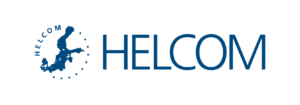The next holistic assessment of the Baltic ecosystem health was planned for in the Meeting of Monitoring and Assessment Group () of , concluding today, along with the review of overall process towards an operational system. MONAS Group meets regularly for a scientific-technical scrutiny of regional work on monitoring and assessment of – and human pressures on – Baltic Sea marine environment, Decisions of last month’s HELCOM laid out major targets for the monitoring and assessment work of HELCOM and steered planning for the future. The Ministers agreed that the holistic assessment of ecosystem health will be updated by the end of 2016, the first having been issued in 2010. MONAS Group has now agreed that the report will include information on the state of the marine environment and human derived pressures, an assessment of distance to good environmental status, socio-economic considerations of protecting the sea, as well as an update of solutions for how to reach good environmental status. Completing the set of core indicators on ecosystem health was at the heart of the Meeting, now when first such have recently been on the HELCOM website. The Meeting reviewed the work planned for 2014–2015 and proposed new activities for marine litter and underwater noise indicator development, as well as for monitoring, assessment and measures. The 2013 Ministerial Meeting decided that both marine litter and underwater noise ought to be in the focus of HELCOM work in the coming years, and for marine litter a regional action plan should be developed by 2015. The Meeting reviewed activities and initial ideas for constructing a HELCOM Monitoring Manual that describes the joint coordinated monitoring system of the Baltic Sea. The Manual will streamline and modernise HELCOM’s current approach to coordinated monitoring. Furthermore, it is being prepared with the view to support the reporting on monitoring programmes by HELCOM countries being EU member states under the Marine Strategy Framework Directive. The Monitoring and Assessment Group was also briefed about core indicators to follow up on nutrient input reductions by the countries according to the new reduction targets. A full report on nutrient inputs is about to be published and work is underway to have a streamlined system with harmonised methods for monitoring and assessment of nutrient loads from Baltic Sea countries. In addition, a draft report presented to the Meeting show that significant decline in atmospheric pollution to the Baltic Sea has taken place since the beginning of the 1990s, on atmospheric supply of nitrogen, heavy metals, dioxins and furans. The report by the European Monitoring and Evaluation Programme () details this decline, also resulting in lower deposition of these pollutants to the Baltic Sea. The full report will be published on the HELCOM and EMEP websites in late December. HELCOM MONAS Meeting also reviewed the work that is on-going in various projects and expert networks under MONAS Group, such as those working on monitoring and assessment of coastal fish, radioactivity, phytoplankton and zooplankton. The Meeting was chaired by HELCOM MONAS Chair Ms. Anna-Stiina Heiskanen, Finland, and co-chaired by Chair of HELCOM LOAD, Vice-Chair of HELCOM MONAS Mr. Lars M. Svendsen, Denmark. * * *Note for editors:The Baltic Marine Environment Protection Commission, usually referred to as , is an intergovernmental organization of the nine Baltic Sea coastal countries and the European Union. HELCOM has worked since 1974 to protect the marine environment of the Baltic Sea from all sources of pollution and to ensure safety of navigation in the region. HELCOM is the governing body of the “Convention on the Protection of the Marine Environment of the Baltic Sea Area,” more usually known as the Helsinki Convention. * * *For further information:Maria LaamanenProfessional SecretaryHELCOMTel: +358 46 8509198E-mail: maria.laamanen@helcom.fiSkype: helcom101 Johanna LaurilaInformation SecretaryHELCOMTel: +358 40 523 8988E-mail: johanna.laurila@helcom.fiSkype: helcom70
The next holistic assessment of the Baltic ecosystem health was planned for in the Meeting concluding today.

